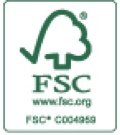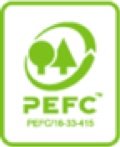ISBNs and BIC & BISAC Codes Explained
ISBNs
The first thing you need to do when you publish your title is to allocate it an ISBN. The International Standard Book Number (ISBN) is a unique product identifier for books and related material. It is the most important number you will need and aids the listing, discovery and distribution of your books. With our publishing packages we procure and register an ISBN on your behalf.
An ISBN is essentially a product identifier used by publishers, booksellers, libraries, internet retailers and other supply chain participants for ordering, listing, sales records and stock control purposes. The ISBN identifies the registrant as well as the specific title, edition and format.
ISBNs are assigned to text-based publications (ie one-off publications rather than journals, newspapers or other types of serials). Any book made publicly available, whether for sale or on a gratis basis, should be identified by an ISBN.
It doesn’t matter in which form the content is documented and distributed; however, each different product form (such as paperback, hardback, ePub, etc) must be identified separately with its own registered ISBN number.
If you don’t wish to purchase a publishing package with us but wish to procure your own ISBN number, you can do that through the Nielsen ISBN Store.
BIC and BISAC Codes
BIC and BISAC codes are category classification codes used within publishing to identify the genre of a title being published, and form part of your book’s metadata.
BIC is a classification tool developed by Book Industry Communication. In the UK it is typical to provide BIC subject codes. The full list of BIC subject codes is here, and an interactive category selection tool is here.
BISAC is another classification tool developed by Book Industry Study Group. BISG have put together a handy FAQ and tutorial for BISAC codes here.
Typically, during the publication process you can submit three BIC codes that you feel represent your title’s genre. This data is then used during the search algorithms set up in most bookshops.
Don’t worry, we’ll fill out all of the information for you. However, if you wish to choose your own BIC codes, please tell us which three you feel fit your title best and we will ensure this information is used at the publishing stage.

 Bookvault
Bookvault Photobubble
Photobubble BookWIZARD
BookWIZARD




